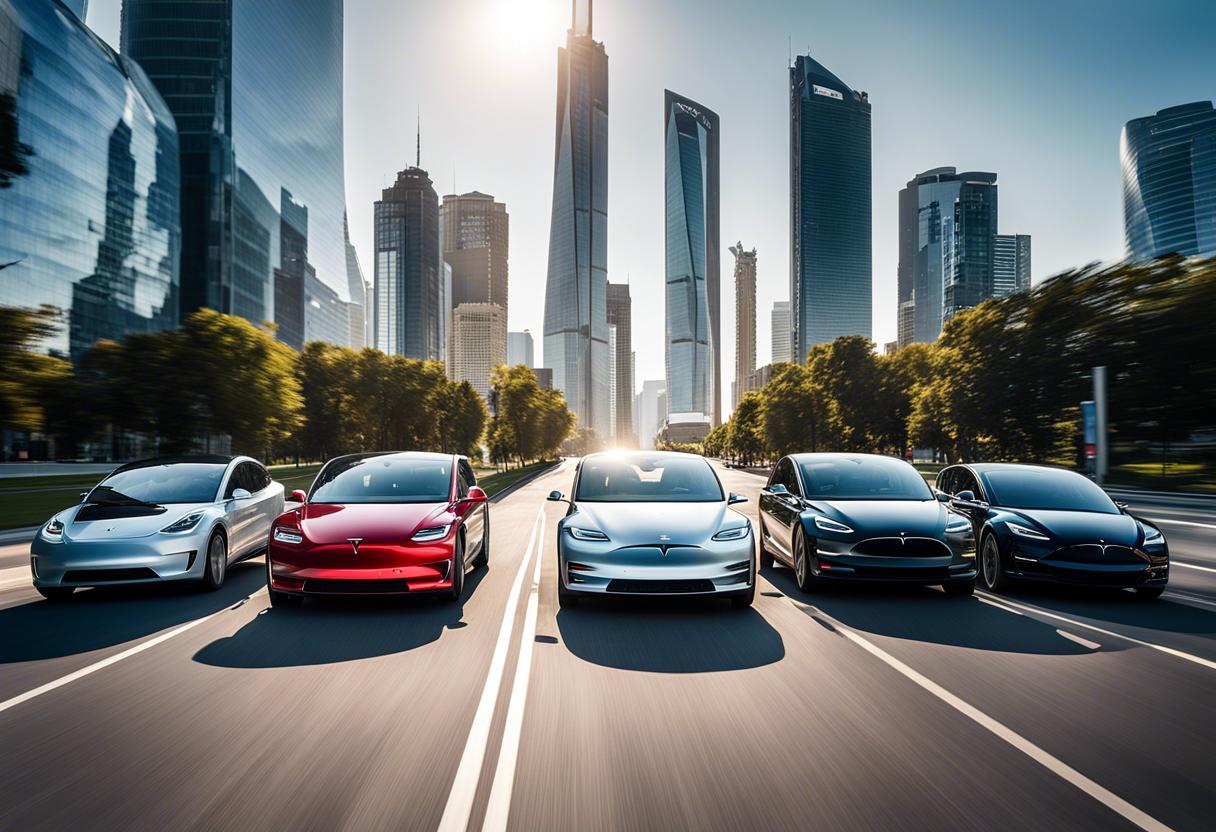Elon Musk believes that Tesla should receive an evaluation similar to a company focused on artificial intelligence or robotics, not one primarily associated with automobiles. He predicts that once Tesla perfects unsupervised autonomy, it may experience the ‘largest increase in asset value in history’. Impressively, Tesla’s stock has been notably bullish as investors seemingly agree with Musk’s assertion.
Nonetheless, Drew Dickson from Albert Bridge Capital put forward his scepticism in a recent Financial Times piece, arguing that Tesla is currently valued as though it is a “fully AI and robotics company”, even though it isn’t there yet, considering that the automotive sector still contributes to 82% of its overall revenues.
Continuing his analysis during an X platform discussion, Dickson mentioned the anticipation of analysts for Tesla’s earnings per share to be around $2.56 (€2.38) by 2024.
If a price-earnings ratio of 20 is taken into account, Tesla’s central business would approximately amount to $50 per share. Applying a price-earnings ratio of 15 on the earnings per share estimated at $1.85 (Dickson’s approximation) would signify a share price closer to $30.
Between these two options, the market capitalisation of Tesla could be roughly estimated at $175 billion or $95 billion. However, Tesla’s valuation currently stands at $565 billion, suggesting that investors are already attributing $400 billion-$500 billion in anticipation for the robotics and AI transition that Musk hopes Tesla will achieve.
Even though Dickson has previously expressed positive sentiments about Tesla’s stocks, he maintains a short position in his personal account. He makes a valid argument: Tesla’s share price is already reflecting exceedingly high expectations.

